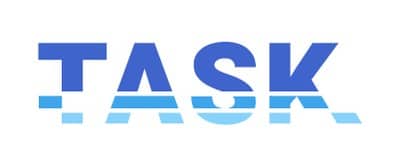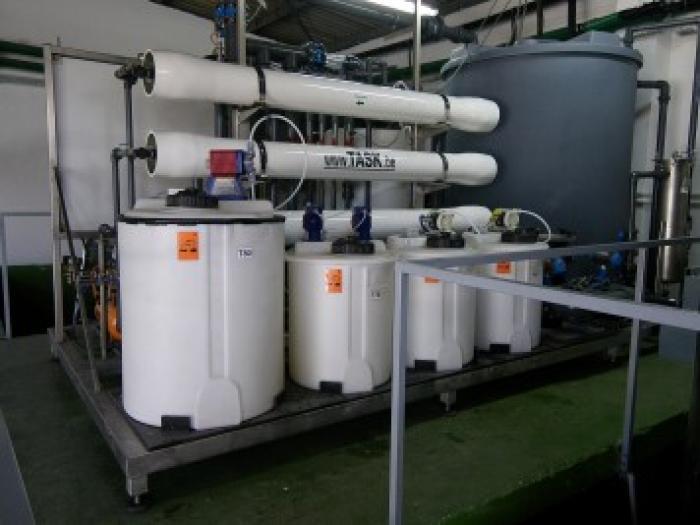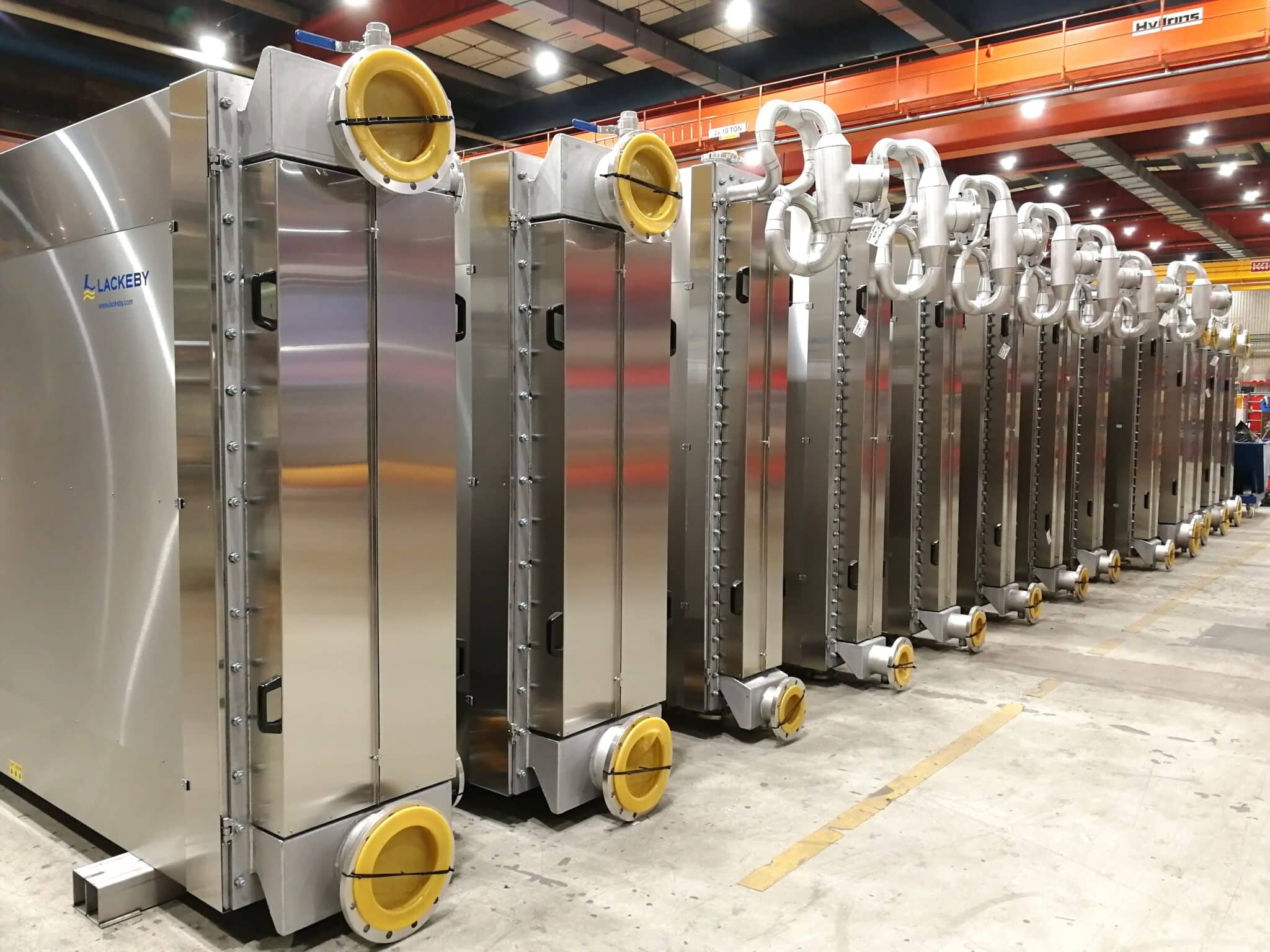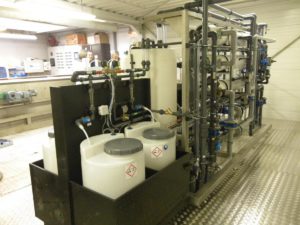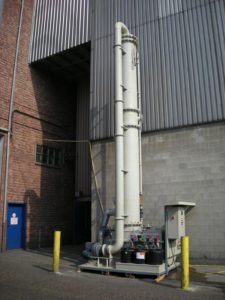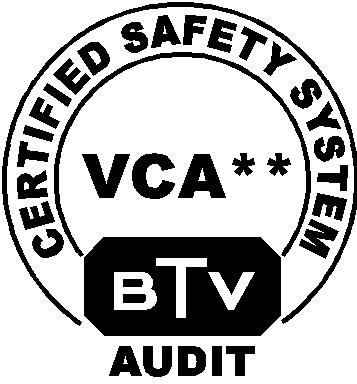Reuse of process waters – oil emulsion separation with membrane technology (Caradon Radiators)
Radiator manufacturer Henrad, part of the Caradon group, is paying a lot of attention to environmental friendly production methods. In its production plant in Herentals the company aims to respect the environment in all possible areas and to make the work floor as healthy and as pleasantly as possible for its collaborators. In order to render the teststage of the radiators as economical and as ecological as possible, Henrad contacted Task. Task, specialized in environmental engineering and directed by Stefaan Kovács, has worked out a satisfying solution in close collaboration with Henrad’s project leader. Henrad’s project leader is not only responsible for the company buildings and the larger infrastructue, but is also continuously engaged in all kinds of environment related subjects. It’s in this capacity that he could state that waste water flows the company produced could be optimized.
“It was especially during the testing of the radiators that the situation was subject to improvement”, he is explaining. “Our products are submerged in a testing tank, where they are put under pressure with compressed air, to allow us to detect possible leaks. However, we noticed that these testing tanks got polluted all too quickly. This is quite logic, because the radiators, made of large steel plates, continue to carry traces of oil from the welding robots. These oil traces were causing microbiological pollution of the testing tanks. That way, the water got trouble. Which is a problem, because we need clear water for optimal testing conditions, where our people can visually detect the leaks. Clear water is also necessary to prevent corrosion of the radiators and is better for our collaborator’s health.”
Thorough audit
Henrad was solving the problem by changing the water in the testing tanks almost daily. Only, this procedure was consuming 40 to 50 m³ of water on a daily basis. Which led to an enormous wastewater stream. “Ending all up in our traditional waste water treatment installation, having to treat several other waste water streams as well.”
In order to continue to meet the severe environmental standards, Henrad decided not to discharge the water any longer, but to recycle it. After having consulted several partners, the company found their way to Task. “We had been collaborating with this company earlier”, continues the projectleader. “Earlier they provided us with an installation for the production of our process water. Being satisfied about their intervention, we were confident to collaborate again.”
The first contact with Task goes back to the beginning of 2005. After a thorough audit and extended lab tests, both parties took their time for a thorough evaluation of the problem and its possible solutions.“ After this carefull assessment of all proposals received, a decision was taken at the end of 2006. Henrad finally choose an installation based on ultrafiltration technology”, Stefaan Kovács ads. “The choice of the membranes, but also preparation of the water was of crucial importance to get a perfectly functioning water treatment installation. Based on the test results Task proposed a crossflow ultrafiltration installation, based on a batch driven filtration process, allowing to further concentrate the waste water a number of times.”
The installation has been designed for a capacity of 1000 li of permeate per hour, but the actual performance score of the installation reaches the double of these values.
Seamless integration
The polluted water enters the working tank with a COD value of 500 ppm and is then further concentrated with a factor 30 to 50. The COD value of the permeate is below 50, the microbiological desinfection of the water is completed at the same time as well. The bright green colour of the permeate is due to the corrosion inhibitor added, which is necessary to protect the tested radiators.
“The concentrate is collected in a tank which is periodically emptied and collected. Henrad isn’t obliged any longer to discharge it’s wastewater stream. The permeate is collected in the permeate tank, waiting for re-use in the testing tanks. The energetic consumption of the entire installation is approx. 7,5 kW. The installation works fully automated, PLC-controlled according to Henrad’s standards. The system is entirely custom-made and perfectly integrated in the production process. It has been installed in the production hall.”
Experience
The installation was started up at the beginning of 2007 and thus has been functioning without interruption ever since. “The system is running fully automatically and without any problem”, Henrad’s project leader clarifies. “Which is not that obvious, because it often are the small details deciding on how succesfully an installation will function. I’m following the machine on a daily basis. Thanks to the very open communication with Task right from the start, I already was familiar with the system even before it was installed. We then started from zero and now can dispose of an installation entirely adapted to our production process. This environmental progress was crucial to us, but on top of that, the system is saving us money in two other areas. We don’t have to pump up water any longer and we don’t have to discharge the water from the testing tanks. This way, the discharge taxes the company has to pay are a lot lower than before.”
“The smooth functioning of this kind of installations depends for a great deal on the internal follow-up by the customer”, Stefaan Kovács says. “The responsible staff at Henrad’s is very professional and keeps the membranes in an optimal condition, which is very important because those are the heart of the entire installation.
Custom-made solutions
Task Environmental Engineering, located in Heist-op-den-Berg, has been managed since 1997 by Stefaan Kovács, who can show 35-40 years of experience in the environmental business. The company is specialized in emission treatment, wastewater treatment and odour control for small and mid-size companies. “We take care of the entire problem : from design up to realization, through a conceptual and precise made-to-measure job. We can distinguish ourselves in the realization of special environmental projects ; we attach a lot of importance to the choice of the materials and to the after sales services that this kind of “special” installations are requiring.”
Task has no obligations to it’s equipment suppliers nor is it part of a bigger holding, which might impose certain purchase obligations. “This independance is giving us the opportunity to find the most suitable solutions for each customer and to choose the best price worthy materials. We attach a lot of importance to the training of the customer’s operating staff, to assure a good functioning installation in the long run and in the best possible circumstances.” Task also has strong references in the area of complete renovation and/or optimization of existing wastewater and emission treatment plants. “More and more, we get customers who have realized after a number of years that the installation chosen previously does not meet the actual standards any longer. It often happens that the old installation cannot cope with the recent production increase. An optimization and/or renovation becomes unavoidable. As far as possible we try to keep a maximum of existing elements, in order to keep the cost as low as possible aiming to obtain the proposed and required result.”
Footnote
Henrad in Herentals has been closed down. The same installations are running since 2010-2012 at Caradon Stelrad in Nuth (the Netherlands) and at TermoTeknik in Çorlu, Tekirdag, Turkey, all members of the Caradon Radiators group.
